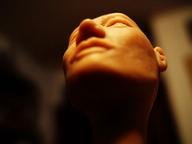Quiz Answer Key and Fun Facts
1. This philosopher wrote "Leviathan". He stated that absolute monarchies are the best type of government. He stated "In this state of nature, solitary, poor, nasty, brutish, and short..." He was an extremely pessimistic person, looking down on human nature.
2. This philosophe was a French writer who wrote about government. He published "On the Spirit of Laws" in 1748. He especially admired Britain's government because of its inbuilt 'checks and balances'.
3. This philosophe was exiled twice from France to England because he used satire against the French government. He used his quill pen to write many works on religious tolerance and freedom of speech. He wrote "Candide".
4. This Italian philosopher wrote about crime and punishment. He didn't like the French judicial system. He advocated speedy trial, no torture, and definitely no capital punishment.
5. This philosopher had a very optimistic view of human nature, unlike Hobbes. He stated that in a state of nature, humans are neutral, not bad like Hobbes said. He advocated self government, a direct democracy. He formulated the three natural rights - life, liberty, and property.
6. This philosopher strongly disagreed with other philosophes that science, art, reason improves the lives of people. He thought that civilization corrupts people. He believed in radical egalitarian reforms such as redistributing wealth and eliminating the aristocracy. He published "The Social Contract" in 1762.
7. This female philosopher fought for women's participation in politics and education. She wrote "A Vindication of the Rights of Women" in 1792. She also argued that women should be able to become more than just nurses, but also doctors.
8. What was another name for the Enlightenment?
9. Who wrote "Two Treaties on Government", a book which justified the overthrowing of James II in the Glorious Revolution?
10. What was the book "A Serious Proposal to the Ladies" about?
Source: Author
rolfch1p
This quiz was reviewed by FunTrivia editor
bloomsby before going online.
Any errors found in FunTrivia content are routinely corrected through our feedback system.

